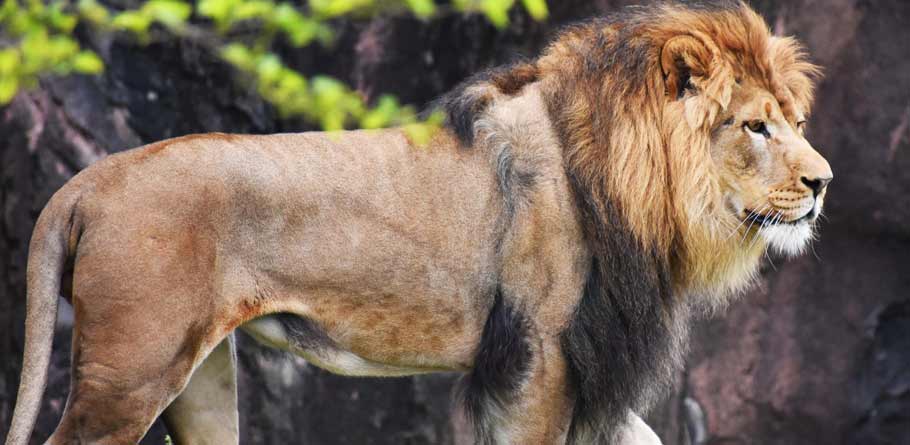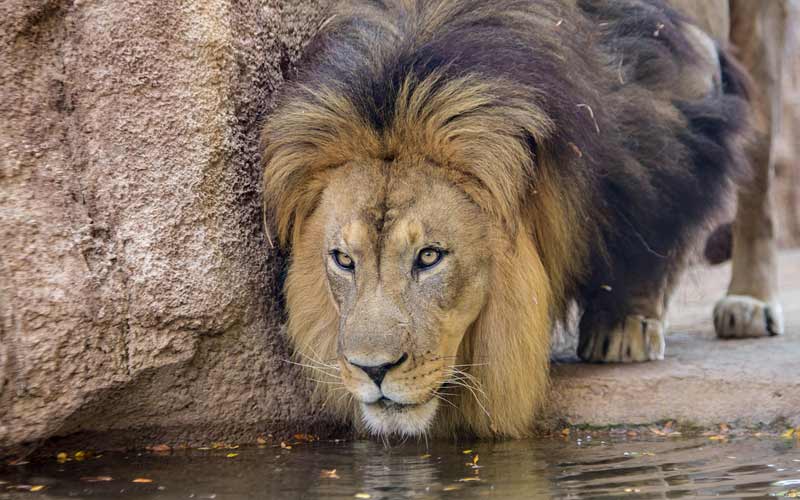Lion Price in Pakistan

How Much Does a Lion Cost in Pakistan?
Lions, often termed the “King of the Jungle,” have been fascinating creatures for mankind for centuries. Their majestic appearance, commanding presence, and raw power make them a popular symbol of strength and royalty. In this comprehensive guide, we dive deep into understanding the cost associated with purchasing and maintaining a lion in Pakistan.
1. Purchasing a Lion in Pakistan
Price Factors: The cost of a lion in Pakistan depends on various factors including its age, health, lineage, and whether it’s wild or bred in captivity. On average, the price of a young lion cub bred in captivity ranges between PKR 1,000,000 to PKR 3,000,000. Adult lions, especially those with a proven lineage, can be much more expensive.
Legality: It’s vital to note that the buying and selling of lions in Pakistan are governed by strict laws and regulations. The Pakistan Wildlife Act prohibits the capture and trade of wild lions, ensuring that any transaction is ethical and does not promote poaching or illegal wildlife trade.
2. Costs Associated with Raising a Lion
Housing and Infrastructure: A lion requires a spacious and secure enclosure, preferably with natural elements mimicking their natural habitat. Constructing such a habitat can range from PKR 5,000,000 to PKR 10,000,000 based on size and complexity.
Feeding: Lions eat a significant amount of food, primarily meat. Depending on the age and size of the lion, one can expect to spend around PKR 1,500 to PKR 3,000 daily on food alone. This totals up to an annual feeding cost of around PKR 547,500 to PKR 1,095,000.
Veterinary Care: Regular check-ups, vaccinations, and emergency medical care are essential for a lion’s health. This could range from PKR 100,000 to PKR 300,000 annually, depending on health conditions and potential unforeseen medical expenses.
3. Ethical Considerations and Responsibilities
Wildlife Conservation: Lions are a protected species under the IUCN Red List. Prospective buyers must be cautious not to indulge in activities that harm the natural population of these majestic creatures. Purchasing from reputable breeders who prioritize animal welfare is paramount.
Well-being and Enrichment: Lions are complex creatures with needs beyond just food and shelter. Owners need to invest in toys, training, and interactions to ensure mental and physical well-being. This is a continuous cost, both in terms of time and resources.
Training and Safety: Ensuring safety around a lion is paramount. Hiring an experienced animal handler or trainer can cost around PKR 500,000 to PKR 1,000,000 annually.

4. Reselling and Relocation
In scenarios where the owner can no longer care for the lion, it’s crucial to find an ethical way to relocate or sell. Accredited wildlife sanctuaries or reserves often work to rehabilitate and care for these animals. Always ensure that any potential buyer or facility can provide a life of dignity and care to the lion.
5. The Long-Term Commitment
Owning a lion is not just about the upfront purchase cost. It’s a lifelong commitment of love, care, and financial resources. The total cost, when added over a lion’s average lifespan of 10-15 years, can be substantial. It’s essential for prospective owners to understand this commitment and be ready for the long haul.
Conclusion
Purchasing and maintaining a lion in Pakistan is a significant investment, both financially and emotionally. Beyond the monetary costs, it demands time, dedication, and a genuine passion for ensuring the well-being of this majestic creature. Anyone considering taking on such a responsibility must be fully prepared for the challenges and rewards it presents.
Top 5 Frequently Asked Questions About Lions in Pakistan
- Is it legal to own a lion in Pakistan?
While certain regulations allow for the ownership of exotic animals in Pakistan, the Pakistan Wildlife Act has stringent criteria and conditions. Anyone considering ownership must ensure compliance with these laws to avoid legal ramifications. - How much space is required to house a lion?
Lions need expansive spaces that mimic their natural habitat for optimal health and well-being. A suitable enclosure should be large, secure, and provide opportunities for enrichment and exercise. - What is the primary diet of a lion?
Lions are carnivores and predominantly consume meat. Their diet usually consists of large ungulates, but in captivity, they often receive a mixture of meat cuts, bones, and supplements to ensure proper nutrition. - How long does a lion live in captivity?
With proper care, lions in captivity can live anywhere from 10 to 15 years, sometimes even longer. Their lifespan often depends on the quality of care, diet, and medical attention they receive. - Are there ethical concerns related to owning a lion?
Yes, ethical considerations play a significant role. Lions are wild animals, and there are concerns about their well-being in captivity. Additionally, potential owners should ensure that their purchase does not promote illegal wildlife trade or poaching.

2 nonth bachy ki kia pric h lion k
Rs: 650,000
Lone babe pires plz